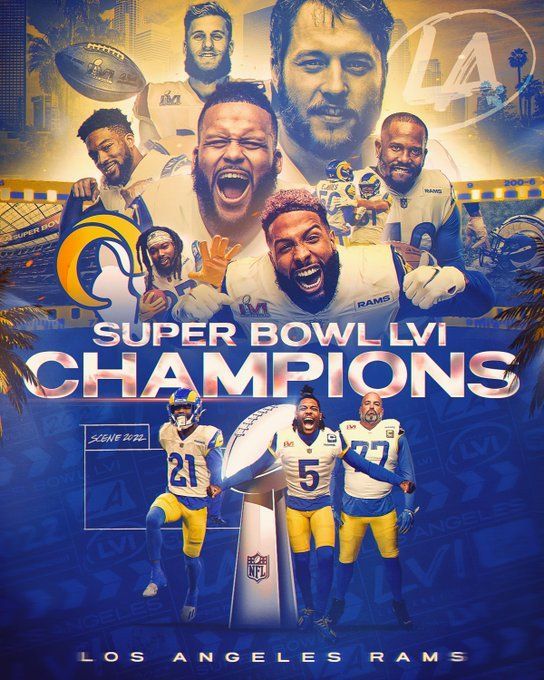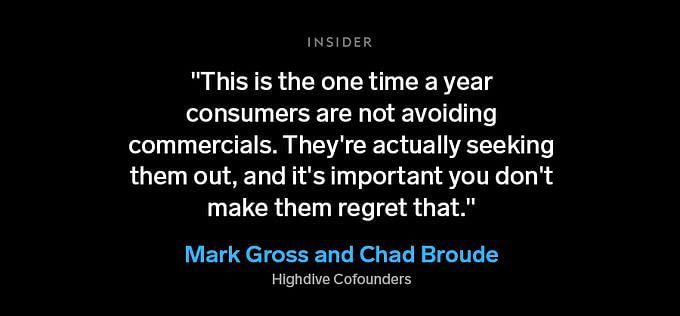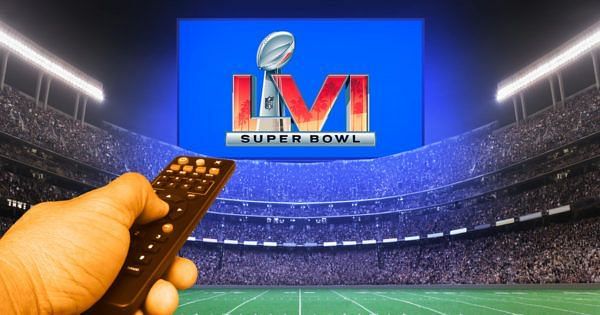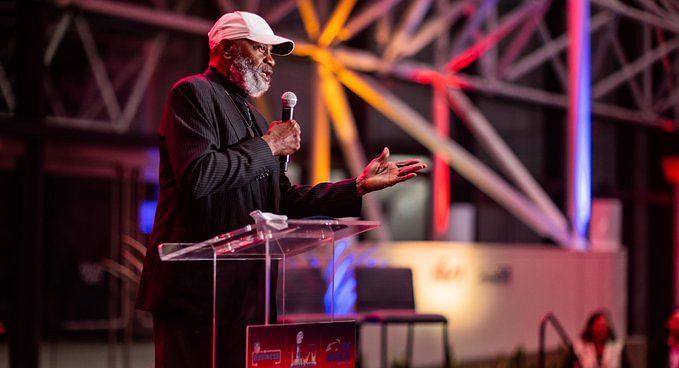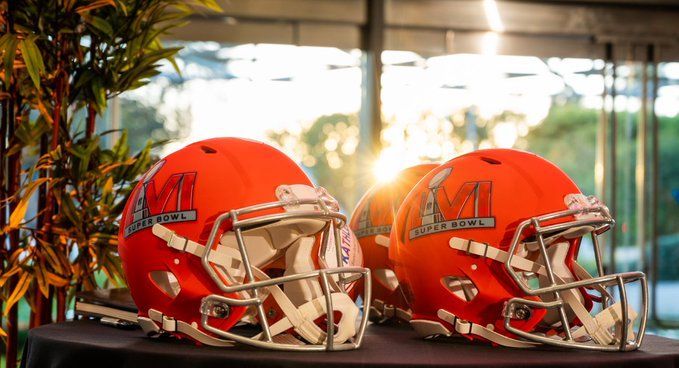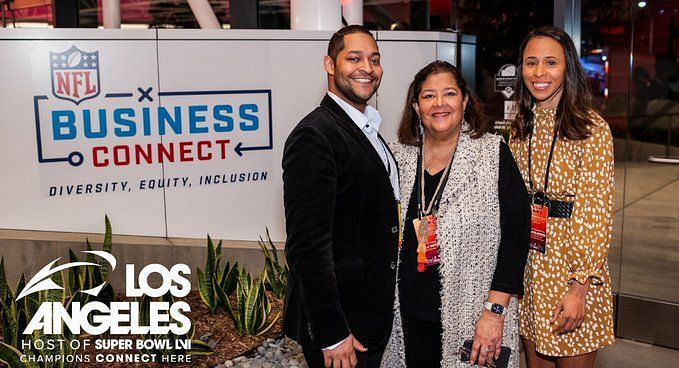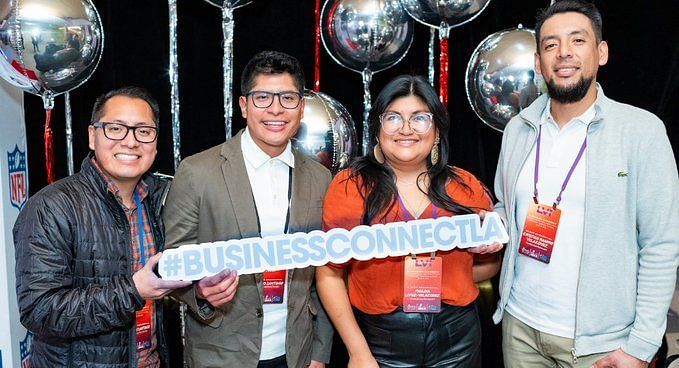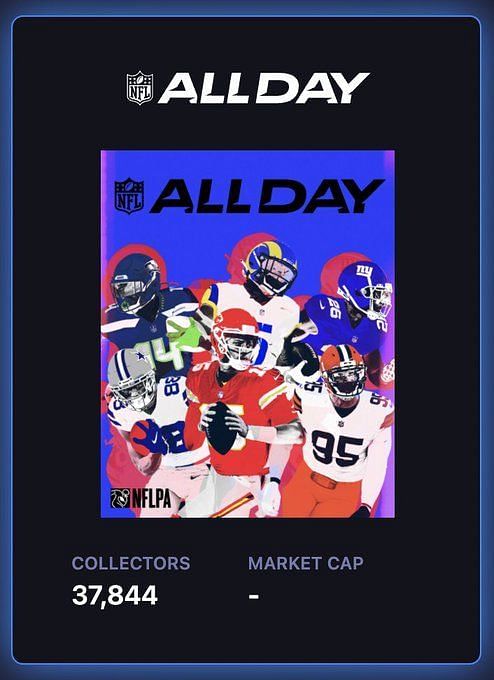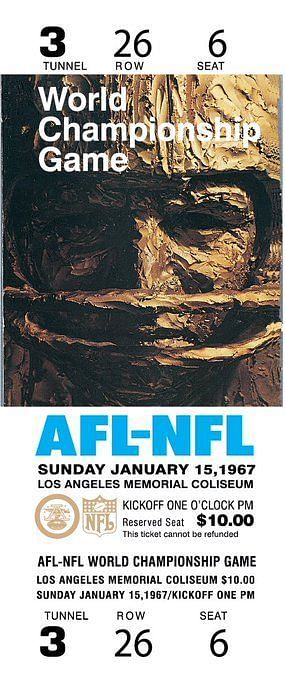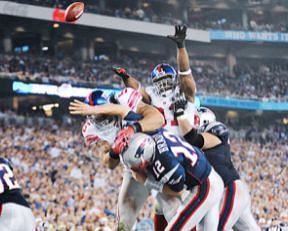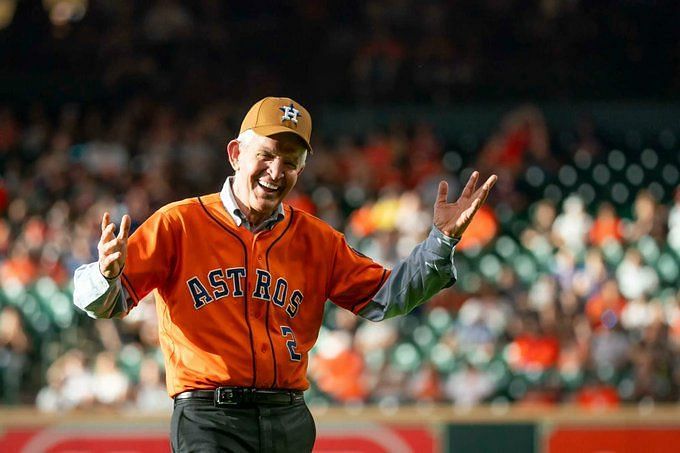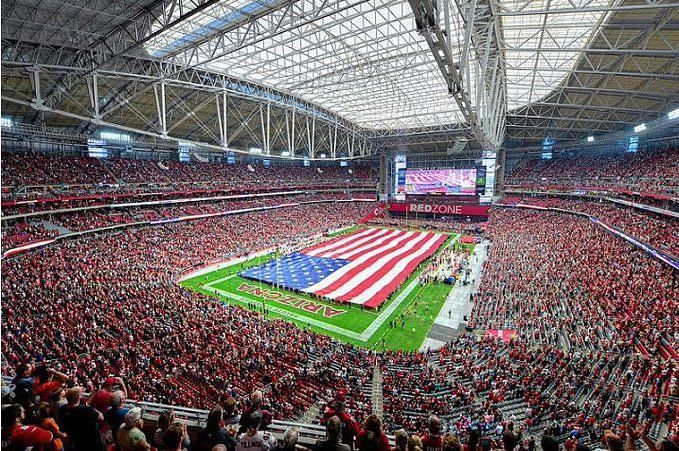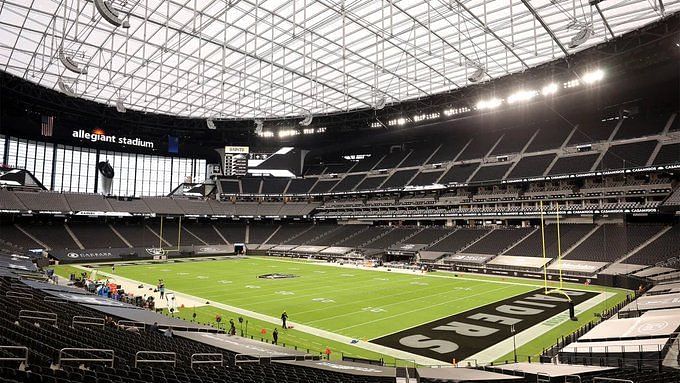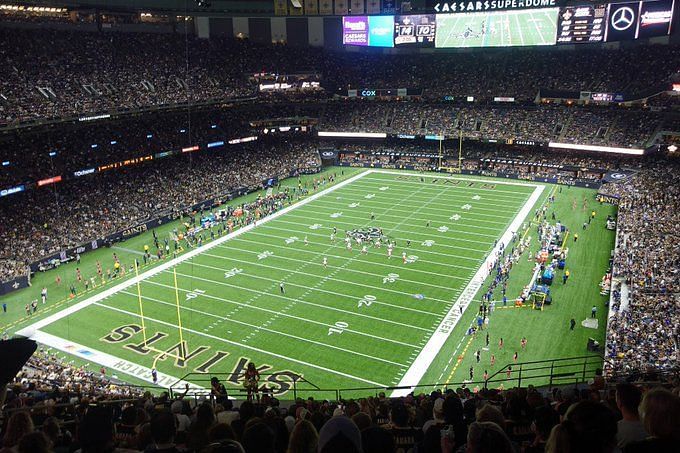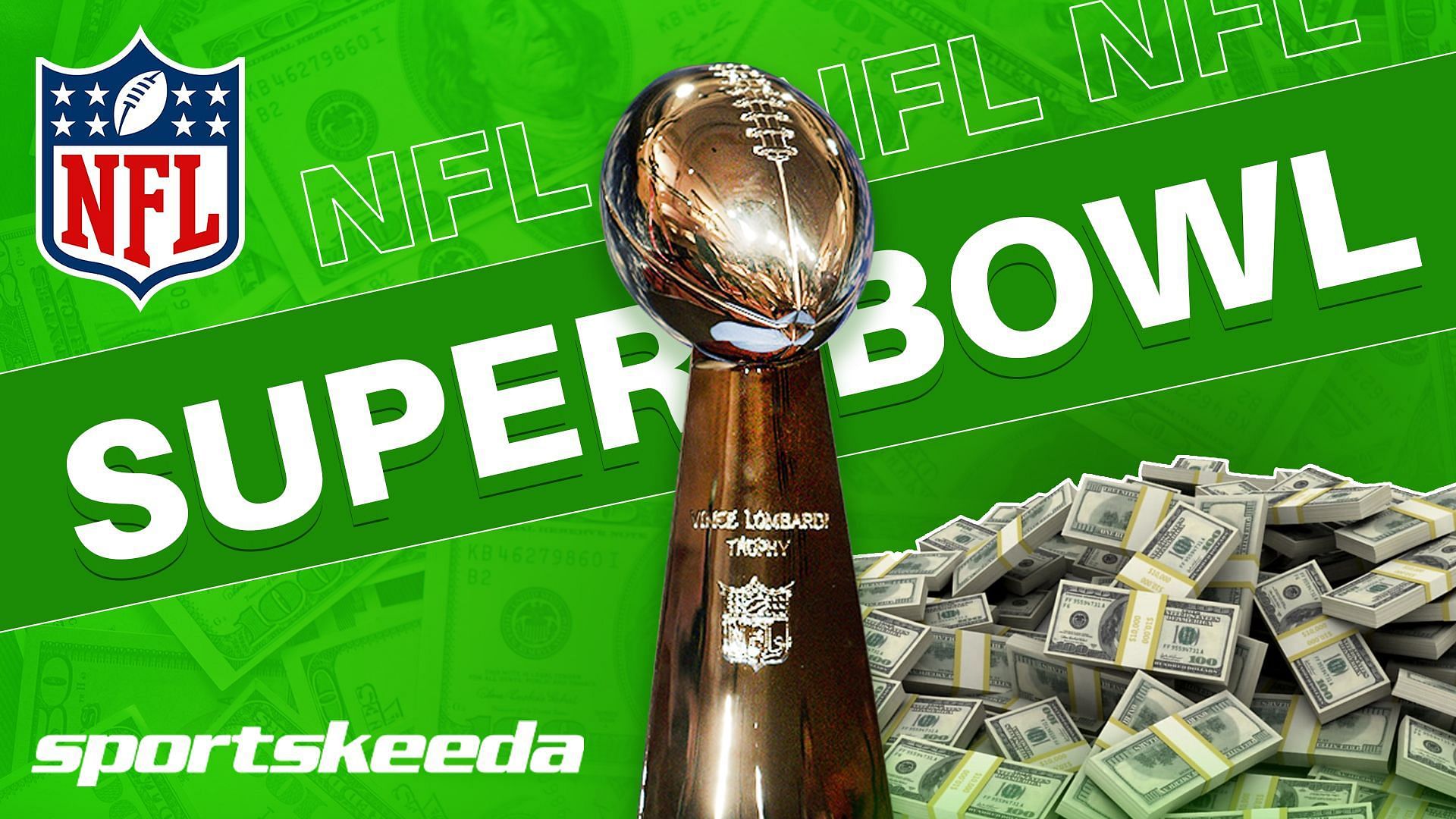
NFL Super Bowl LVI: The business behind one of the richest sporting events in the world
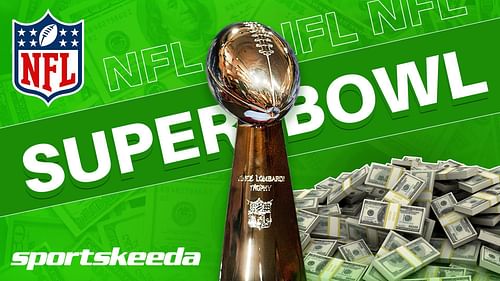
The National Football League (NFL) Super Bowl LVI concluded on February 13, 2022 as the Los Angeles Rams defeated the Cincinnati Bengals 23-20.
For all those who do not follow the game vividly, the Super Bowl is the annual playoff championship match of the NFL, which is the richest sporting league in the world.
While it might be behind in terms of popularity, the money that is spent throughout the season, including on the ultimate Super Bowl Sunday, is mind-boggling to say the least, with nearly 100 million eye-balls expected at the event.
Each player of the LA Rams bagged a $150,000 bonus due to their victory while every member of the Cincinnati Bengals earned $75,000 as a bonus. But the business of this event runs far deeper than the teams and its players.
To shed some more light on the topic, let's look at a complete breakdown of the entire business surrounding Super Bowl LVI.
The NFL Super Bowl is the most expensive advertising day of the year
As the headline suggests, TV ads do some of their best business during the Super Bowl since American football is far more monetizable than "soccer" which has nearly 10 times its popularity around the globe.
The average NFL game runs for three and a half hours, which has about 50 minutes of commercials, thereby generating substantial TV money through lucrative ad deals with a number of brands.
In fact, the NFL partnerships amounted to $1.8 billion for the 2021/22 season, as per reports. But the stakes are higher at the Super Bowl.
Super Bowl LVI was no different as more than 50 brands promoted their business through interesting ads during the match. But to do so, they had to splash the cash on a large scale.
As per reports, each 30-second ad slot was sold for $6.5 million, while some slots also sold for $7 million or more. In fact, since 2000, Budweiser has been the highest ad-spender at the Super Bowl, indicated by their $440 million investment at the event over the last 22 years.
The beer company is followed up by Coco-Cola ($151.2m,), Toyota ($137.7m), T-Mobile ($133.1m), Universal ($124.1m), Doritos ($116.6m), Pepsi ($112.5m), Jeep ($106.8m), Amazon($101.7m) and Kia ($100.8m).
However, it was also interesting to see how brands approached their marketing campaigns this year, as compared to last year.
Innovative marketing campaigns by brands at Super Bowl LVI
The NFL made quite a lot of money through ads on Super Bowl Sunday, but every brand justified their slot in the commercial run-time this year with innovative content and one that resonated with people.
Last year, the emphasis was on health as Covid-19 was still on the minds of people but this year, the emphasis was on sending out valuable messages with interesting taglines.
Let's take a look at arguably the top 5 ads at Super Bowl LVI.
5) Toyota launched a campaign featuring Paralympian champions Robin and Brian McKeever to depict their journey of becoming Olympic cross country skiing athletes despite having an eye disability. The car company created the tagline "Start your impossible" for this campaign.
4) SalesForce, a software company, took aim at a number of billionaires trying to enter the metaverse or planning to go into space. Matthew McConaughey starred in this ad and he placed emphasis on engaging with people in real-life on Earth before forming relationships in the digital world or in outer space.
3) Budweiser used their iconic Clydesdale horse in an inspiring advertisement where the animal injures itself but then recovers on its own and then continues on its journey despite being initially bogged down. The beer company used this as part of their 'Down Never Means Out' campaign.
2) Amazon used their Super Bowl ad slot to depict Scarlett Johannson and her husband, Colin Jost, trying to figure out how life would have worked out had the Amazon Echo "Alexa" managed to read their minds instead of listening to their voice.
1) Pepsi, who also sponsored the Halftime Show at Super Bowl LVI, had one of the best ad campaigns as they released The Call advertisement as a prelude to the main show on Super Bowl Sunday. The ad featured Dr. Dre, Eminem, Mary J. Blige, Kendrick Lamar and Snoop Dog.
The quintet later pulled off one of the best Halftime Shows in Super Bowl history, on a production set worth $7million, out of which the NFL paid just $1million, with the rest being financed completely by Dr. Dre.
Massive Broadcasting rights for NFL Super Bowl LVI
The NFL in itself is arguably the richest sporting league in terms of revenue, courtesy of which, its broadcasting rights are sold at high premium prices.
Since 2007, CBS, FOX, and NBC have been alternating for the rights of the Super Bowl but all three platforms collectively pay the NFL $3 billion to telecast the league yearly, with one of the three also then awarded the rotating rights for the Super Bowl event. NBC had the opportunity to do the same in 2022.
Given the money spent on some of the other sporting events and tournaments across the globe, the NFL does churn out a sizeable portion of its revenue through its broadcasting rights.
SoFi Stadium is a huge source of ticketing income
Los Angeles got the opportunity to host Super Bowl LVI and it was a mesmerizing experience inside the SoFi Stadium in Inglewood. The arena is a complete sports and entertainment complex, which can seat 70,000 fans and can also be expanded to 100,000, thereby making it one of the top 10 largest stadiums in the country.
It took about $5 billion to construct this mammoth complex. To put its size into perspective, Verizon, an American multinational telecommunications company, shelled out $119 million to ensure 5G connectivity throughout the stadium and in areas nearby the arena.
The average price for a Super Bowl LVI ticket was $4,114, while the most expensive one was apparently sold for $33,730. However, this was only for the game as the Halftime Show had its own fan-following, with the tickets for it ranging from $3,100 to $75,000.
So basic math would indicate that the NFL bagged itself a multi-million dollar source of income through the ticketing end itself.
Local businesses flourished due to Super Bowl LVI
Last year, due to the Covid-19 pandemic, only a handful of supporters got the opportunity to witness the Super Bowl inside the stadium. However, things have changed for the better this year as tens of thousands of fans flocked to LA to watch the final between the Cincinnati Bengals and the LA Rams.
There was an increased buzz in the air since the home team was also playing in the ultimate championship game.
Local businesses took full advantage of this. Hotels raised their rates by anywhere between 50% to 300% during the weekend of the game, netting as much in a few days as they ordinarily might in a month.
There will always be a cheaper hotel on the internet, but most fans look to stay in places that are relatively near to the stadium, to avoid the hassle later on.
Entertainment venues, restaurants, and retail businesses also form part of the local economy that was largely expected to benefit from the Super Bowl event. Although the real figures are yet to be released, city officials estimated that local businesses shall reap at least $500 million due to the entertainment spectacle on February 13.
Moreover, this is just the start for Los Angeles. The SoFi stadium is also set to host the College Football Playoffs next year, the 2026 FIFA World Cup and the Olympics opening ceremony in 2028. So the area is going to earn considerably during this decade due to premium sporting events.
Super Bowl LVI used to launch NFTs into the NFL
NBA Top shot, a non-fungible token (NFT) marketplace, was launched just a year ago but the kind of response it received has put other American sporting leagues chasing the world of NFTs to shame.
Although a couple of cryptocurrency companies like the FTX exchange and, Canadian cryptoexchange company, BitBuy booked a commercial ad slot for Super Bowl LVI, NFTs are yet to enter the fray in American football.
However, those days are very near. The NFL recently inked a deal with Dapper Labs to produce its own NFT game, called “NFL All Day,” which concerns the trading of “iconic highlight collectibles” and one can build up their collection or sell their NFTs on an in-game marketplace.
To kick-start its launch, it offered NFTs to all of its attendees who came to the final at Inglewood on Sunday.
But between the 6th and 13th of February, the NFL released seven historic commemorative NFTs for purchase designed by a local Southern California artist. This was just a taste of what's about to come as the "NFL All Day" kick-starts next season and fans can get their hands on a unique moment or collectible of the sporting league.
With the NBA Top shot recording $25.236 million in monthly sales, with 64,650 unique buyers last month, the NFL could increase its business on an even larger scale once their NFT marketplace goes live.
Super Bowl LVI betting: A high stakes game
During the week of the Super Bowl, the American Gaming Association estimated that nearly 31.4 million people are planning on placing bets for the nail-biter event, which is a 35% increase from last year. In fact, bettors were expected to wager an estimated $7.61 billion, up by 78% from last year.
The sharp rise in the sports betting zone has come from the fact that America now has 30 states that have legalized sports bettting, with 19 of them allowing online sports wagering.
By the end of 2020, only 20 states were allowing sports bets to be placed, but last year has seen 10 more states join this list, while New York also launched its mobile sports betting program recently which hit a national monthly handle record of $1.6 billion in January.
The Cincinnati Bengals were the underdogs going into the game and while the results indicated the reasons behind it, several fans took a punt on them as they understandably had higher returns.
Famous high-stakes gambler Jack McIngvale, better known as "Mattress Mack," placed $4.5 million on the Cincinnati Bengals to win the Vince Lombardi trophy.
So one can learn from him about the pitfalls of sports but on the other hand, he would have won a handsome sum had the Bengals not let the game slip in the 4th quarter, thereby portraying the advantages of placing a bet. Regardless, the billion dollar industry is going to boom further in the coming years.
The Future Roadmap for NFL?
The NFL, which is arguably the richest sporting tournament in the world, is set for new developments in 2022. As mentioned previously, NFTs are set to enter the fray while the sports betting market could also increase if more and more states decide to legalize it.
However, in terms of hosting its regular season games and the Super Bowl event, there will be some big changes. For example, the NFL announced on the weekend that Munich has been chosen to stage the first-ever regular-season game in Germany during the 2022 season.
Dusseldorf, Frankfurt and Munich were in contention to host the International Series Games but the latter duo won the race to do the same. The reigning Bundesliga champions (Bayern Munich) will play host to two of the four games to be played in Germany over the next four years, with Frankfurt, which is home to top-flight German football team Eintracht Frankfurt, hosting the other two.
But for 2022, Munich will play home to one game, while one will be staged in Mexico and three others shall be played in the United Kingdom, as Premier League side Tottenham Hotspur will host two games while the Jacksonville Jaguars will play at home at Wembley Stadium, the official home of the English national football team.
This is a great initiative by the NFL to increase its global footprint around the world, especially since it lacks popularity outside North America and could portray the financial benefits of hosting an NFL game, which is well documented from their ad revenue, sponsorship deals, ticketing revenue, betting market, not to mention how local businesses earn more than they would on a normal weekend.
However, Super Bowl LVII is set to be held in Arizona at the State Farm Stadium in Glendale as FOX will be telecasting the mega event on its grand platform. But hosting the mammoth game is not an easy job as millions go into ensuring that the match is staged properly.
Miami incurred about $20million to host the event in 2020 to build infrastructure and to ensure security measures. Taxpayers also suffer slightly in this regard as they pay for the home team's lodging.
In 2016, San Francisco splashed $4.8million just for the pre-game activities at the Super Bowl. New York and New Jersey spent a combined $70million for the spectacle in 2014 while the last time Arizona hosted the NFL playoff championship (2015), it had to shell out $30 million to ensure everything was in place.
All of this is only if the concerned city already has a state-of-the-art stadium in the works. For example, the SoFi Stadium was constructed for $5.5 billion and while it has the benefits of hosting other events, the Super Bowl is one of its main sources of income, at least for 2022.
The NFL has been a grand success over the last 55 years and the Super Bowl is its marquee event. But at the end of the day, the business behind it is one of the bigger reasons for its fan-following.
They have marketed the event brilliantly over the last decade but the coming years could see it being conducted on a much larger scale, given the prestige that surrounds it and the stakes behind it.
There is only so much money in the world, but the NFL has cracked the code of making the Super Bowl a billion dollar business, which is quite a feat in itself.
